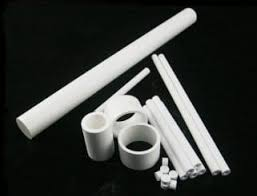Welcome to our blog post on Boron Nitride Insulator! Are you familiar with this unique material and all the benefits it offers? If not, we've got you covered. In this article, we'll explore the properties and characteristics of boron nitride insulators and why they are becoming increasingly popular in various industries. So sit back, grab a cup of coffee, and let's dive into the world of boron nitride insulators!
Introduction to boron nitride insulators
Boron nitride is a material with unique properties that make it an ideal choice for a variety of applications in the semiconductor industry. It is an excellent insulator, with a high thermal conductivity and a low dielectric constant. This makes it ideal for use in high- power devices such as power MOSFETs and IGBTs. In addition, boron nitride has a very low coefficient of thermal expansion, making it an ideal material for use in packaging and interconnects.
Boron nitride can be produced in several different ways, depending on the desired final product. The most common method is to vaporize boron trichloride or boron tribromide in a nitrogen atmosphere. This process produces a white powdery product known as white fused boron nitride. Another method of production, known as hot-pressed boron nitride, involves mixing boron oxide and graphite powder and then pressing the mixture at high temperatures. This method produces a black product known as hexagonal boron nitride (h-BN).
There are many different uses for boron nitride products in the semiconductor industry. One of the most common is as an insulating layer between metal layers in integrated circuits (ICs). Boron nitride can also be used as a barrier layer to prevent diffusion between different materials, or as a heat sink to dissipate heat from high-power.
BN is available in several different forms, each with its own set of properties. The most common form of BN is hexagonal boron nitride (h-BN), which has a similar structure to graphite. h-BN is an extremely strong material, with a Young's modulus that is similar to diamond. It also has good thermal stability and a low coefficient of thermal expansion. These properties make h-BN an ideal material for use in high temperature and/or high stress environments.
Itowu: a leading manufacturer of boron nitride ceramics
Itowu is a Chinese enterprise specializing in researching, developing, producing, and selling new thermal conductivity materials. We offer a variety of nitride series products, including boron nitride ceramic, which is a crystal composed of nitrogen and boron atoms that has good heat resistance, thermal stability, and thermal conductivity, making it an ideal heat dissipating material and high-temperature insulating material. Boron nitride ceramic can be processed into various shaped parts and has excellent electrical performance, corrosion resistance, and thermal shock resistance. Itowu nitride ceramic is used for a range of applications, such as high-temperature solid lubricants, extrusion anti-wear additives, ceramic composite additives, and refractory materials.
Conclusion
In conclusion, boron nitride is a valuable insulator due to its high thermal stability and electrical properties. It can be used in various applications from electronics to aerospace engineering. Its unique characteristics provide many advantages over other materials like low cost of production and increased performance. By understanding the properties, characteristics, and benefits of this material, designers can make informed decisions when choosing an insulation material for their project.
